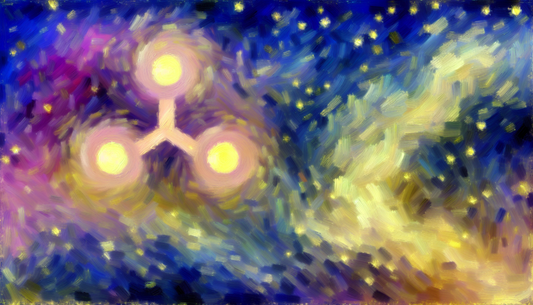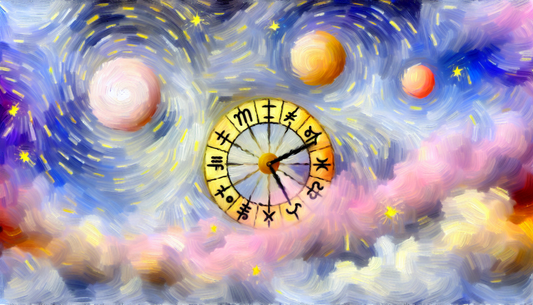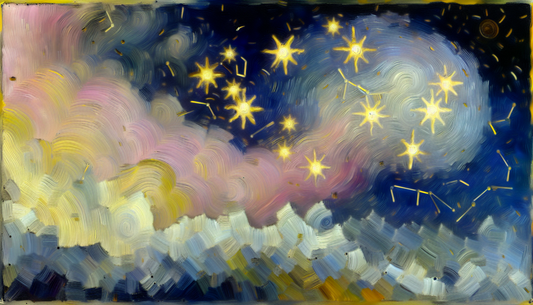Throughout history, astrology has played a significant role in shaping events and influencing the paths of notable figures. From ancient civilizations to modern-day decision-makers, a myriad of personalities and pivotal moments can be connected to celestial alignments and astrological insights. Let's delve into how astrology has influenced historical events and figures and the fascinating stories behind them.
The Babylonians and the Birth of Astrology

The roots of astrology can be traced back to ancient Babylon, where priests and astronomers meticulously studied the movements of celestial bodies. They believed these movements held significant meanings and could predict earthly events. The Babylonians crafted horoscopes to forecast everything from agricultural cycles to the reign of kings. Their astrological insights were so influential that rulers often consulted them when making crucial decisions, merging the divine with the mundane.
The ancient Greeks further refined these ideas, integrating astrological knowledge into philosophy and science. Figures like Ptolemy contributed extensively to astrology, documenting how celestial bodies influenced human affairs. This early confluence of astrology and governance laid the groundwork for future leaders who would consult the stars for guidance.
Notable Monarchs and Their Astrological Beliefs
Throughout history, many monarchs and rulers have turned to astrology as a source of wisdom. Perhaps one of the most famous examples is King Louis XIV of France. Known as the "Sun King," Louis had a close relationship with astrologers. His court was filled with astrologers who dictated the timing of important events, from coronations to military campaigns. He believed that astrology granted him divine favor and protection, reinforcing the idea of his rule being sanctioned by the heavens.
Another notable figure is Queen Elizabeth I of England, who was known to consult astrologer John Dee. Dee's analyses and forecasts were integral to her decision-making processes, especially concerning matters of war and diplomacy. Elizabeth's distrust of certain astrological interpretations, however, illustrates the dual nature of astrology’s influence - used as a tool for power but also subjected to personal beliefs and biases.
Astrology and Exploration
The Age of Exploration was also significantly influenced by astrology. Navigators and explorers often consulted celestial charts and astrological predictions to guide their voyages. Christopher Columbus, for instance, relied on astrological guidance during his expeditions to the New World. He meticulously calculated the positions of celestial bodies to determine favorable times for setting sail; these celestial alignments forged not just new trade routes but also transformed global history.
Astrology also played a crucial role in charting the fate of entire nations during this time. As countries expanded their territories, the interest in astrological associations with land ownership and governance grew. Nations often adopted astrological symbols to align with certain celestial bodies, seeking to imbue their newly-acquired territories with destiny and fortune.
Astrology and War
Astrology has been used across various cultures to predict the outcomes of wars and conflicts. From ancient Egypt through to the major wars of the 20th century, leaders would consult their astrologers to strategize for impending battles. Astrology provided insights into the timing of conflicts and the potential outcomes based on planetary alignments.
Perhaps the most significant and widely recognized use of astrology in military strategy was during World War II. The Allies often consulted astrological charts in their planning sessions. In Germany, astrologers were consulted for war strategies and timing, although this reliance on astrology remains a controversial point of discussion among historians.
The Resurrection of Astrology in Modern History
In the 20th century, astrology saw a resurgence as a popular tool for understanding personal destinies. Figures like Linda Goodman brought astrology to the mainstream with best-selling books, allowing everyday individuals to access astrological insights. The rise of daily horoscopes in newspapers further embedded astrology into the fabric of popular culture.
Astrology also intersected with significant social changes, including the counterculture movements of the 1960s. The quest for personal freedom led many to explore astrological practices in their movements, influencing music, art, and social interactions. This renaissance of astrology reshaped its perception, moving from an elite practice into a more personal and accessible avenue for guidance.
The Continued Influence of Astrology on Contemporary Figures
Today, astrology remains a potent influence on influential figures in various domains, from politics to entertainment. Celebrities like Oprah Winfrey and politicians like Ronald Reagan are known for their interest in astrology. They have consulted astrologers to navigate their paths, signaling the integration of astrological beliefs into their lives and careers.
Moreover, with social media's rise, astrology has gained a voice among young influencers who advocate for astrological wisdom as a form of self-awareness and empowerment. This democratization of astrology encourages individuals to seek their own insights and utilize them in daily life, echoing the historical practices of connecting celestial phenomena to personal unease and planetary transitions.
Conclusion
The intricate relationship between astrology and historical events illustrates how celestial beliefs have guided and influenced human behavior for millennia. From ancient monarchs depending on the stars to modern individuals looking for guidance in their everyday lives, the fascination with astrology remains unbroken. As we continue to explore our relationship with the cosmos, it’s essential to acknowledge the impact that astrology has had on shaping the narratives of our past, and how those narratives continue to unfold with each new alignment of the stars.















